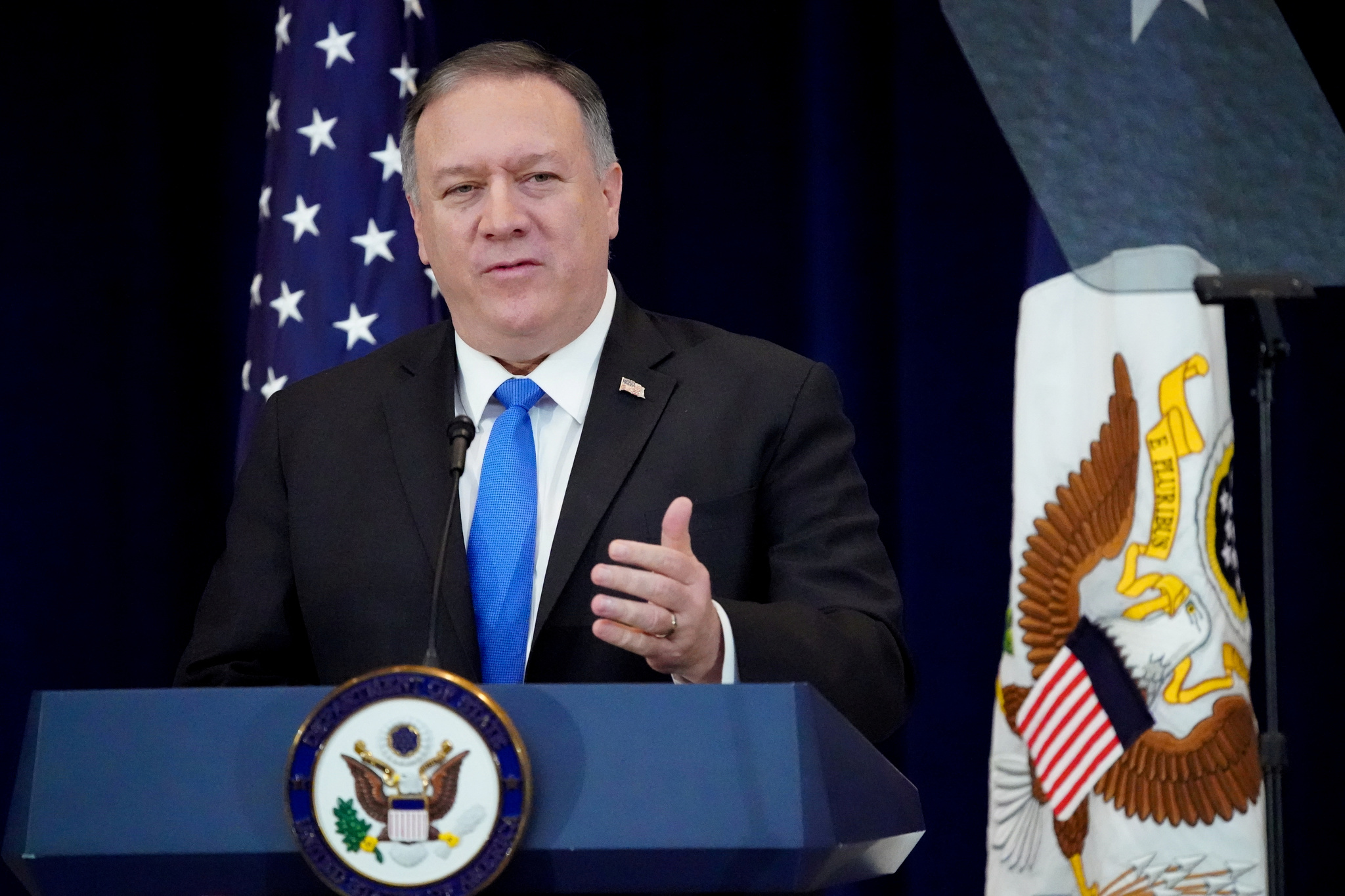- Protests: Shiites in Iraq break ranks with Iran
- Near East. Protests in Iraq: "The child was killed, roasted and sent to me on a tray"
- Crisis: The president of Iraq rejects the candidate to govern and puts his position at the disposal of Parliament
- Opinion: The United States versus Iran: a complex war
The political tension that Iraq has been experiencing for three months, with massive demonstrations and a severe institutional crisis, already reaches the US military presence in the country. An American civilian contractor has died in the attack of about thirty rockets against a military base in the northern city of Kirkuk , epicenter of the historic dispute between Baghdad and the Kurds.
The aggression, the largest for months, has occurred on Friday at 19.20 (16.20 GMT) at the K1 base, located 15 kilometers northwest of the Kirkuk oil company in northern Iraq. "An American civilian contractor has died and several US and Iraqi personnel were injured in a rocket attack against an Iraqi military base that houses coalition troops," the Washington-led international coalition reported on Saturday against 2014 the self-styled Islamic State in a brief statement.
Iraqi security forces lead "the response and investigation." According to Reuters, cited by an anonymous US government source, Washington tries to determine the "possible involvement" in the events of the Shiite militia Kataib Hizbulá , backed by Iran. The US military has suffered minor injuries and has returned to work.
So far, no group has claimed responsibility for the attack. Around the base, IS (Islamic State) cells continue to operate, which have embraced the insurgency tactics after the collapse of the proclaimed caliphate in vast areas of Syria and Iraq.
Late Thursday, a civilian lost his life and two others were injured in a gunfight on the road between Kirkuk and Tikrit. On Tuesday, three agents were killed in attacks in the provinces of Kirkuk and Saladin claimed by the IS.
In the investigation after the onslaught on Friday, security forces have found a Katyusha rocket launching platform inside an abandoned vehicle near the base, where federal police officers are also housed Iraqi and anti-terrorist units.
Similar attacks have been repeated in recent months, in the heat of the protests that have erupted in Baghdad and the main cities in the south of the country demanding the end of the elite that has ruled the country since the decline of Saddam Hussein in 2003. At the beginning this month five missiles hit the US military base in Ain al Asad, in the western province of Al Anbar, without registering victims.
The Pentagon has recognized in recent weeks that attacks by Shiite groups linked to Tehran , which have even reached a base near Baghdad International Airport, have become more sophisticated, fueling the escalation facing Iran and the US since the Washington's exit from the nuclear agreement and its "maximum pressure" strategy.
The base had been visited in the previous days, on the occasion of Thanksgiving by the US Secretary of State, Mike Pompeo . In the middle of the month, Pompeo threatened a "firm response" against Iran if US citizens were victims of attacks made by Tehran. "We must seize this opportunity to remind Iranian leaders that any attack by them or their allies that harms Americans, our allies or our interests will be answered firmly," he warned.
Washington has about 5,000 soldiers deployed on Iraqi soil. The New York Times newspaper, however, has advanced this week that the Pentagon is considering initiating the withdrawal of half of those troops in a large-scale plan to reduce contingents in local conflicts and bring them back to face the challenge of China and Russia .
The attacks coincide with the political uncertainty that opened the resignation earlier this month of Prime Minister Adel Abdel Mahdi . On Thursday, Iraqi President Kurdish Barham Salih threatened to resign in protest for the candidate for prime minister presented by the Al Bina coalition, Asad al Eidani, also censored by protesters.
Since then, Shiite groups accuse Salih of serving American interests and threaten to denounce him before Parliament.
The wave of protests, which began on October 1, demands the retirement of the Shiite-majority political elite , which has ruled the cradle of Mesopotamia since the US invasion. Protesters, without leaders, blame the establishment of endemic corruption, high unemployment rates - especially bleeding among the youth population - and the absence of public services, after years of broken promises.
According to the criteria of The Trust Project
Know more- Iran
- Iraq
- Islamic State
- Syria
- Russia
- China
Report When the victims of war and those who help them are the 'criminal'
Wide Angle Protests without coverage: the era of the digital blackout arrives
Latin America, with Mexico at the top, the most dangerous region in peace for journalists

